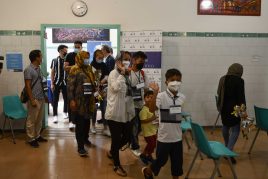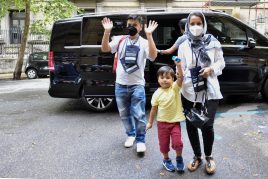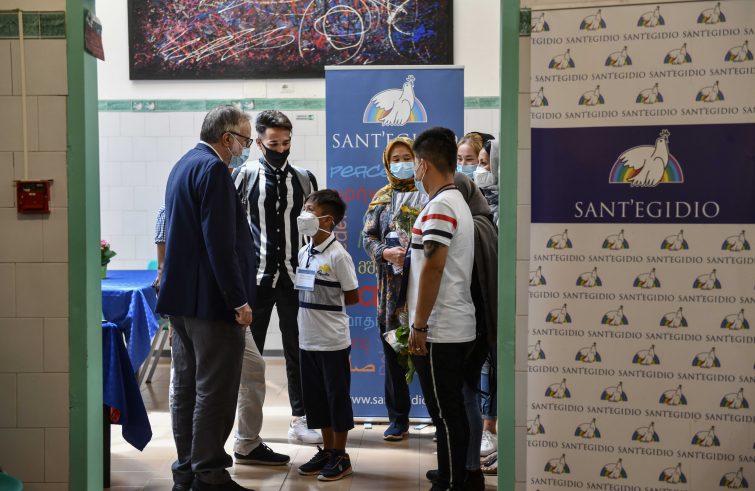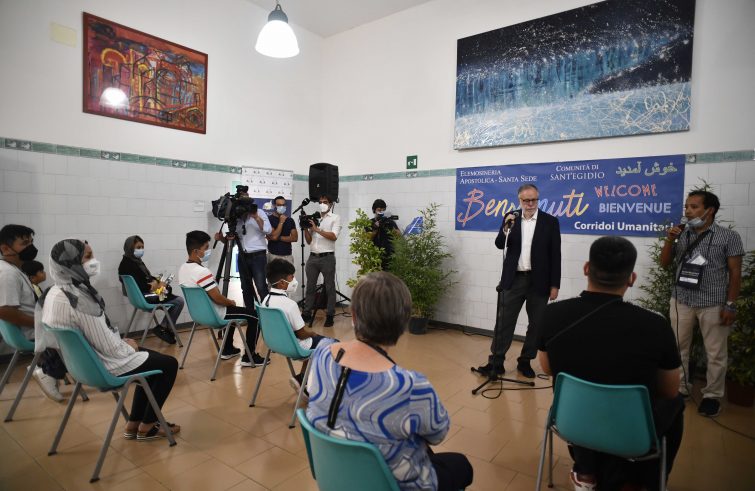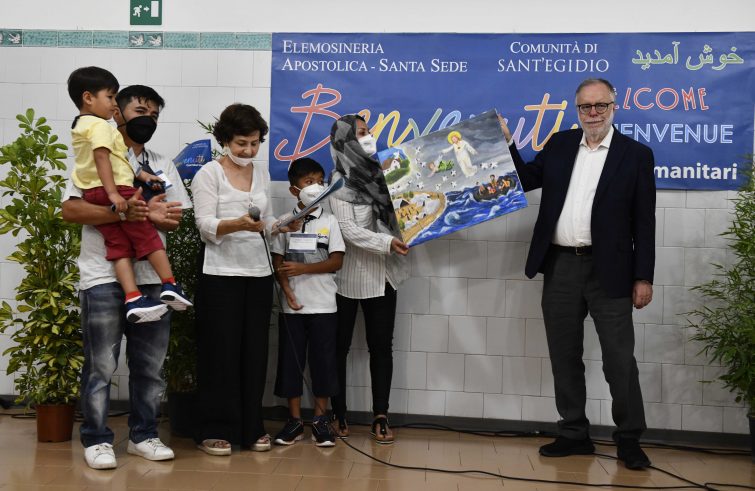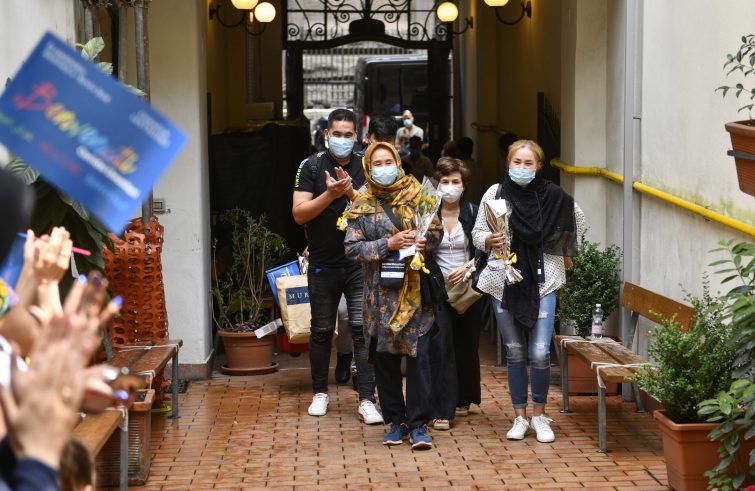
Masks and head scarves for women, light blue welcome flags and a cheerful welcome into the soup kitchen run by the Sant’Egidio Community in Rome. They arrived two and a half hours after the scheduled time due to health safety measures at Fiumicino airport. But they arrived safe, sound and healthy. To them it was an inconsequential delay, having spent years fleeing: from Afghanistan to the Greek Island of Lesvos, known as “the hell of Europe.” Thousands of refugees are stuck in its refugee camps for years, without a future, in inhumane conditions to say the least. Today four families, 10 Afghans including two children, could finally see some hope thanks to the humanitarian corridors organized by the Office of Papal Charities together with the Community of Sant’Egidio, assisted by the Italian and Greek governments. They were supposed to leave in December, but they were delayed by the Covid-19 epidemic and the related border closures. They are the last refugees of a group that Pope Francis had asked to rescue, in addition to 57 refugees brought to Italy earlier, with several trips. The first group arrived on 16 April 2016 on the same plane that brought the Pope back to Rome from his historic visit to Lesvos. “It’s the first door to be opened after the lockdown,” said the founder of the Community of Sant’Egidio Andrea Riccardi, welcoming them to the premises of the soup kitchen in the heart of Rome’s Trastevere district. Over 3,000 refugees from the Middle East and from Africa have arrived into Europe via humanitarian corridors so far. Meanwhile, it appears that in parliament there is growing recognition of the migrants’ tragedies. After the shocking images of drowned migrants in the Mediterranean Sea that no one recovers, 22 deputies of the majority bloc endorsed a cross-party resolution voicing opposition to Italy’s agreements with Tripoli.
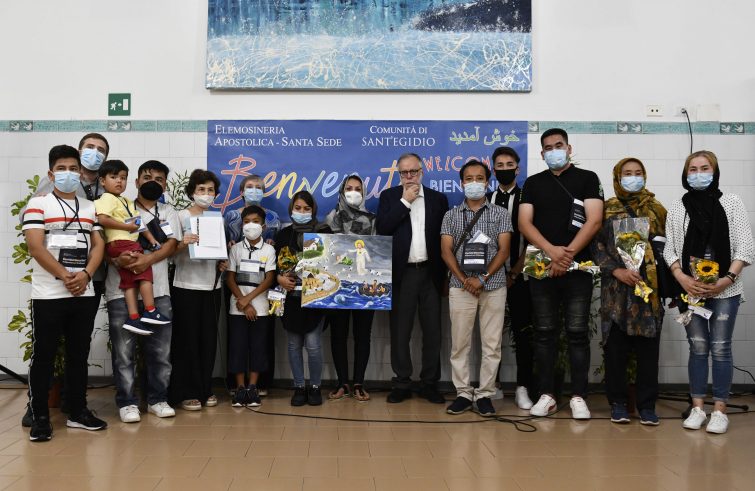 Illegal routes are unsafe. “Illegal routes offer no security to those undertaking the journey, nor to the host country”, Riccardi pointed out. “Humanitarian corridors are not closed and will continue even after the lockdown.” The founder of Sant’Egidio had already met the refugees two years ago during a trip to Lesvos. He remembered those who offered him tea and invited him into their shabby tent, giving him permission not to take off his shoes. “It’s been a very long wait – he said – the corridors reopen along with integration into Italian society. This brings hope and joy.”
Illegal routes are unsafe. “Illegal routes offer no security to those undertaking the journey, nor to the host country”, Riccardi pointed out. “Humanitarian corridors are not closed and will continue even after the lockdown.” The founder of Sant’Egidio had already met the refugees two years ago during a trip to Lesvos. He remembered those who offered him tea and invited him into their shabby tent, giving him permission not to take off his shoes. “It’s been a very long wait – he said – the corridors reopen along with integration into Italian society. This brings hope and joy.”
- (Foto Siciliani-Gennari/SIR)
- (Foto Siciliani-Gennari/SIR)
“Refugees need world-wide support!” was the heartfelt appeal of Razieh Gholami, an Afghan refugee who arrived in Italy with her husband and two children after two years spent in Greece. Razieh donated one of her paintings to the volunteers of the Community of Sant’Egidio, whom she called her “guardian angels.” “We are living in a century in which science and technology progressed enormously and human beings were able to develop robots and the atomic bomb. Has humanity and love for human beings progressed at all?”, the young mother asked, pointing out that those who have fled just as they did from countries at war or from persecution, are seeking “security and a better life.” “The refugees living in the camps in Moria,” she said, “are facing a difficult and frightening situation. They are deprived of their basic rights, those necessary to live. They are depressed, hopeless, they have no way to return or move on!” She went on in a soft cry: “If there were divine prophets in this century, what would they say to the believers?
Has compassion perished in our world?”
Now that she finally reached a safe and peaceful place, she decided to dedicate the painting to those who are always available “to help desperate people.”
- (Foto Siciliani-Gennari/SIR)
- (Foto Siciliani-Gennari/SIR)
- (Foto Siciliani-Gennari/SIR)

